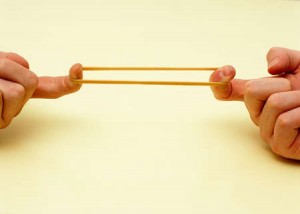The following is an excerpt from a teaching by Jetsunma Ahkon Lhamo offered during a Phowa retreat:
So where were we the last time we met? We were dead, weren’t we? We were, weren’t we? Let’s see, how dead were we? I think we were pretty much all the way dead. We had finished with the red and with the white, and we were talking about the black path or the dark path, but I have more to give you on that. Anyway, we definitely are dead here.
There are some interesting passages in this book that I would like to use as well. There’s one point that the lama in this book makes that I think is worth making. Even though it isn’t what you’d call an essential point, still, it is definitely a worthwhile point, and it’s because of the way we think. When we think about practicing for death, or when we think about, even talk about the different kinds of sufferings that people may undergo, even talk about the kinds of death experiences that we will all definitely share in common, and some of the unique experiences that some of us may share, there are many people who give Buddhism a bum rap. What I would call a bum rap. And the idea, of course, that they confer when they have that thought is kind of a bum idea, if you think about it. It isn’t thought through; it is an idea born of ignorance. What people say about Buddhism often is that it makes them think in a depressive way, or it makes them think in a melancholy way. Since one of the main points in Buddhism is to prepare for what happens after this life, there are many people who accuse Buddhism of being a sad religion or depressive or having a bad effect on one’s mood. Well, these very people are the people who are in denial about the fact that they too will actually go through this experience.
You may not want to learn what to do in an emergency…Here’s a good example: When I was in junior high school, believe it or not, I learned how to deliver a baby, in case of emergency. Can you believe that? This Red Cross representative came to our school and gave us lessons on different things one could do in case of an emergency. And in this case I learned what to do if someone is having a baby and there’s no way to get to a hospital and one is shut off and it’s an emergency. Now you might think to yourself, “So what? What are the chances that I’m going to deliver a baby in this lifetime?” I’m mostly called on when people die; I’m not necessarily called on when they’re born. I’ve had the great, wonderful pleasure of naming babies. I’ve been there right after the baby’s born, but so far, not ever having taken that job as a taxicab driver that I once thought about, I’ve never had to deliver a baby, ever in my life. So you think to yourself, “How useful was that?” Well, the only reason why you would think that is because so far I haven’t had to deliver a baby. But let’s say, any of you who are women capable of having babies, you and I were stranded in a snowstorm some time, and I was the very one that saved you from trouble by delivering your baby. Would you say that that course was useful to me? I would say it’s useful to me, because I would have been climbing the walls if I hadn’t known what to do when you were having a baby! You can count on that. That just would have been the scariest moment of my life! I’d rather usher people out than usher them in! Less messy.
So what does all of this have to do with the Buddha Dharma? Well, I’ll tell you. If the day ever comes that I do get caught in a snowstorm with somebody and have to deliver a baby, and I remember those skills and have to use them, suddenly those skills will be considered by me to be completely different than they were before. Now I think of it as a kind of interesting and unusual thing that happened. Not many people learn how to do this. This is not something that is commonly taught in junior high school. So I can look back and think, “What an interesting episode for the New York school system to bring in these people. It’s just a very interesting thing that the New York school system did.” But the idea that I would have if I were to actually help someone give birth, and I were to actually possibly save a life that way, or at least make a life more comfortable in its beginning, if I were able to do that, suddenly that teaching, that course that I took would take on new dimensions and new meaning. Wouldn’t that be true? Suddenly I would really see the benefit of that in a way that I could not have seen if it were only a theoretical event that I might have to deliver a baby some day. So I would have seen the definite result of that.
Now some people think that it is unfortunate that Buddhism teaches, first of all, about the faults of cyclic existence, and then secondarily about the situation of dying and how our lamas constantly remind us that we in fact will definitely go through this event. This is something that we will all experience. We will not experience it together, so each one of us is responsible for our individual practice. But we will all experience it; there’s no doubt about that. None whatsoever.
Copyright © Jetsunma Ahkon Norbu Lhamo All rights reserved




